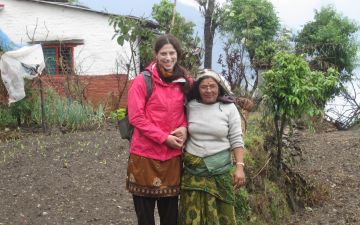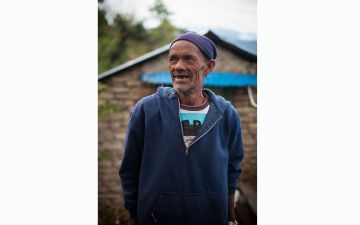In 2002, Laura Spero, then 22, founded Eva Nepal, an NGO that brings dental care to remote Nepali communities. The recent influx of Western sugar and processed food had left 69 percent of Nepali adults with untreated dental problems (the precursor to heart and kidney disease) and affected more Nepali children than malnutrition. A decade later, Eva Nepal serves 18,000 people in two villages.
To fund her $25,000 program, Spero became a conduit between two worlds—Kaskikot, Nepal, and her home community of Bethesda, Maryland. Through annual fundraisers and travel exchanges, the people of Bethesda allowed Eva Nepal to thrive. As Spero expands Eva Nepal to three new villages, her program faces new challenges and a budget that has ballooned to $100,000. Spero contends with corrupt officials, and she lacks the financial resources to spend months in Nepal. There are also cultural barriers: Some Nepalis believe dental care creates blindness and deafness; others have accused Spero of selling children’s teeth on the black market. To survive, Eva Nepal can no longer be a one-woman, neighborhood-supported operation.
Journalist Jennifer Miller traveled to Nepal with Spero to tell Eva Nepal’s story. She followed her to new villages and observed as Spero tried to set her programs in motion. Miller's reporting project explores the role of Spero's home community and how it might adapt to match Eva Nepal's new ambitions.





